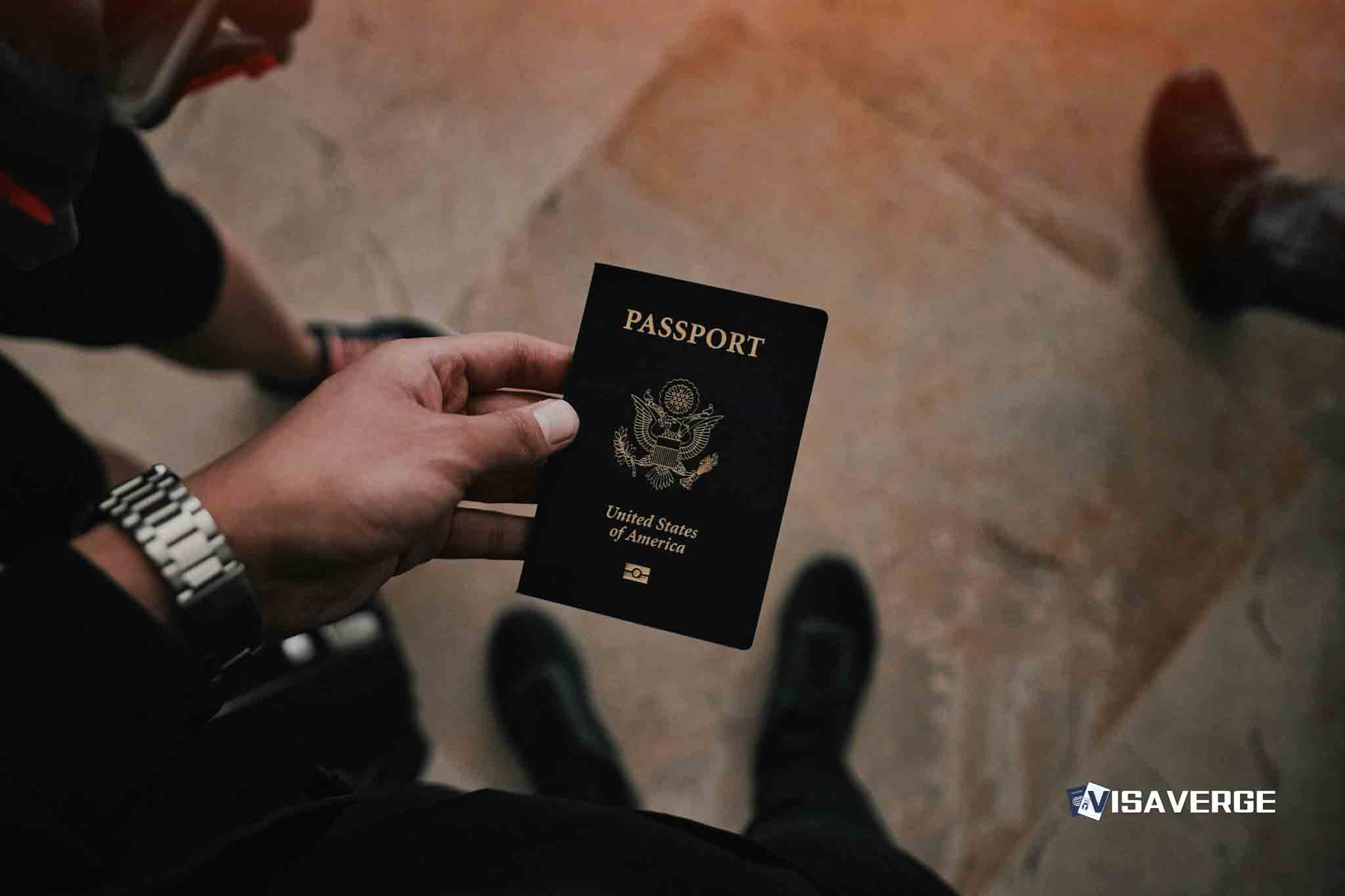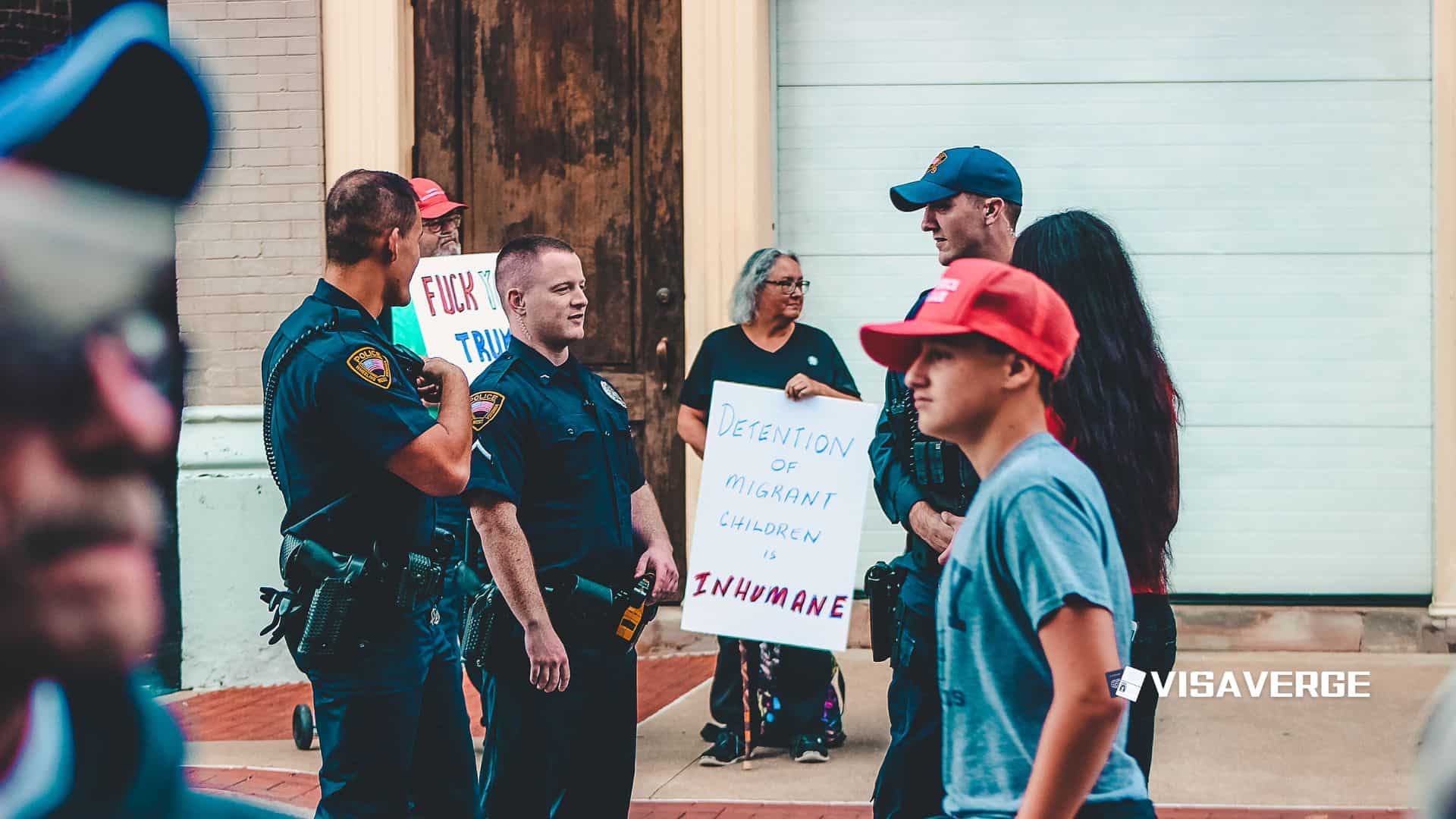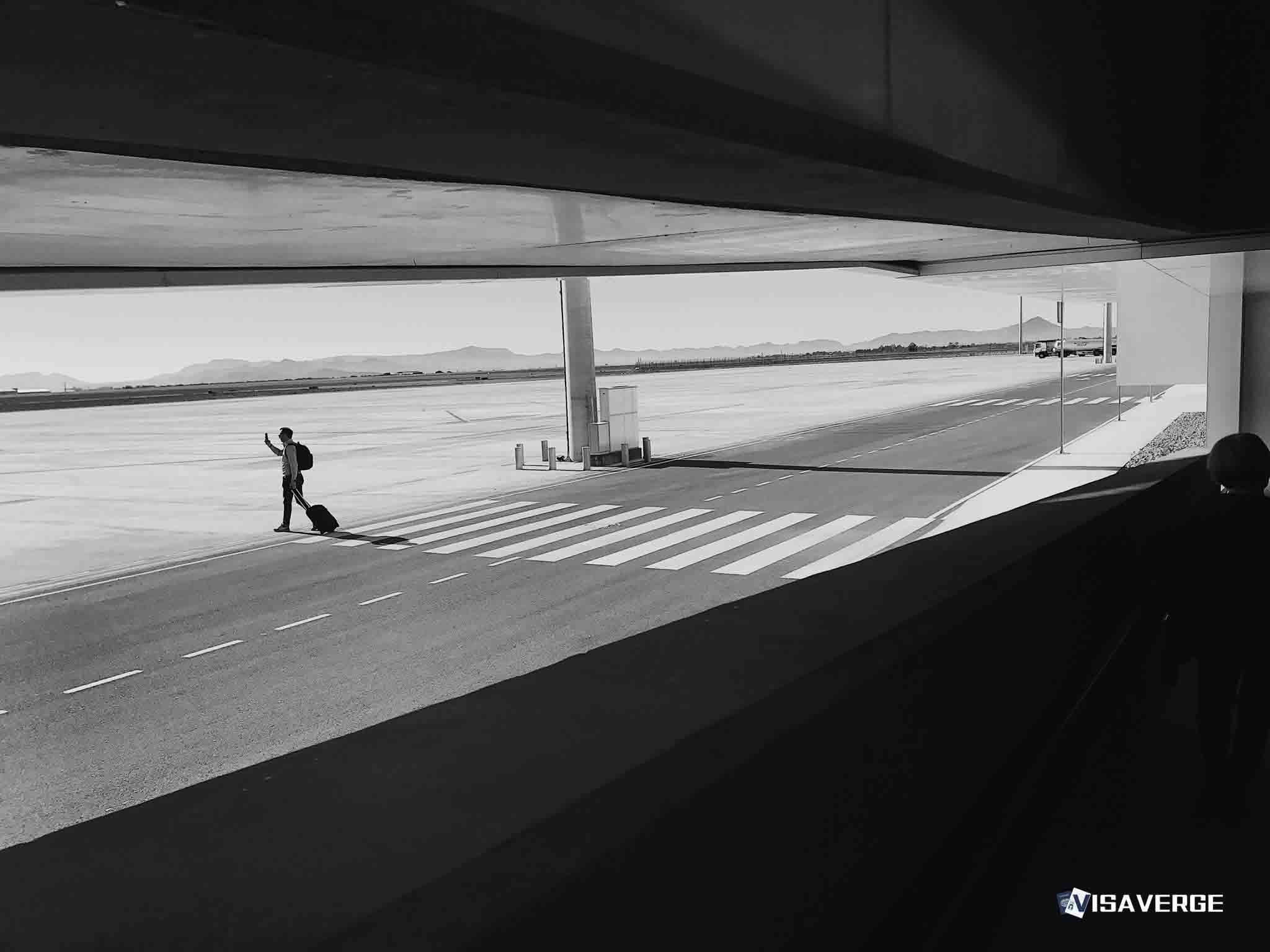Key Takeaways
- Revoking U.S. birthright citizenship threatens legal, social, and economic structures, raising risks like statelessness and increased undocumented populations.
- Birthright citizenship, rooted in the 14th Amendment, ensures equality, but proposed changes challenge its constitutional and historical foundations.
- Legal battles and global ripple effects would follow, complicating nationality determination and impacting family unity, immigration, and human rights.
The potential revocation of birthright citizenship in the United States presents significant legal, social, and ethical questions. At the heart of this debate lies the 14th Amendment, the constitutional provision that solidifies the guaranteed right to citizenship for individuals born within U.S. borders. What would happen if this fundamental provision were removed? And how would it affect children born on American soil, their legal identity, and their future?
Examining Birthright Citizenship and Its Historical Roots

Birthright citizenship, also referred to as jus soli (Latin for “right of the soil”), has been a cornerstone of U.S. immigration policy and national identity for over 150 years. Established by the 14th Amendment following the Civil War in 1868, this principle was designed to ensure that citizenship could not be denied based on race, status, or parentage. It played a key role in addressing the racial inequalities of the Reconstruction Era, guaranteeing that formerly enslaved individuals and their descendants could claim full citizenship rights.
In the landmark 1898 Supreme Court case, United States v. Wong Kim Ark, the Court upheld birthright citizenship for U.S.-born children of immigrant parents, further strengthening its legal foundation. Today, the U.S. 🇺🇸 and Canada 🇨🇦 remain among the few advanced nations offering universal birthright citizenship. However, recent calls for reform—exemplified by discussions of an executive order proposed by President Trump—raise questions about whether this principle remains immutable.
Determining Nationality Without Birthright Citizenship
If birthright citizenship were revoked, children born in the U.S. would no longer automatically become citizens. Instead, their nationality would be determined by their parents’ citizenship and the laws of their home countries. Known as citizenship by descent, this approach is common worldwide under the concept of jus sanguinis (Latin for “right of blood”). Several possible scenarios arise:
- Children of Non-Resident Parents
For instance, a child born in the U.S. to Indian nationals on temporary work visas might qualify for Indian nationality under India’s citizenship laws. Countries like India 🇮🇳 grant citizenship to children born overseas if at least one parent is an Indian citizen. -
Risk of Statelessness
Not all children would gain citizenship under their parents’ nationality laws. Some countries only grant nationality through birth registration, and any inefficiencies or prohibitions could leave children stateless. Statelessness, a global issue impacting millions, leaves individuals without a legal identity or access to essential rights, such as healthcare, education, and employment. -
Impact on Mixed-Status Families
Children born to parents with differing immigration or residency statuses could face a maze of legal complexities. In cases where one parent is a U.S. citizen or a lawful permanent resident, the child would typically qualify for U.S. citizenship through family ties, though this would not apply universally.
Legal Status in the U.S. for Such Children
Children born in the U.S. without citizenship would have to rely on their parents’ legal status to remain in the country. Here’s how this could unfold under various parental circumstances:
- Children of Undocumented Parents
These children would likely be categorized as undocumented immigrants, just like their parents. Without a legal pathway to citizenship, they would reside in the U.S. in an unprotected status, at constant risk of deportation. -
Children of Parents on Temporary Visas
In cases where parents hold temporary work or student visas (such as H-1B or F-1 visas), their children could be eligible to stay under dependent visa classifications. However, such residency would be temporary and offer no pathway to permanent residency or citizenship. -
Mixed-Status Families
Children with one U.S. citizen parent may still qualify for citizenship, but those without such a parent could face gridlocked systems of dependency on their parents’ legal statuses.
Consequences of Policy Changes
Revoking birthright citizenship would result in challenges at every level—from legal disputes to economic impacts.
- Administrative Hurdles
Hospitals and government agencies would face the complex task of verifying the legal status of every newborn’s parents. Determining a child’s eligibility for Social Security numbers and vital documents, like passports, would require an entirely new bureaucratic framework. -
Economic Repercussions
The contributions of immigrant communities to pivotal economic sectors, including agriculture, health services, and technology, are undeniable. Cutting birthright citizenship could deter skilled workers from moving to the U.S., with broader implications for innovation and productivity. Analysis from VisaVerge.com highlights that restricting this right could also increase the undocumented population significantly over time. -
Social Fragmentation
Families are likely to face heightened stress, uncertainty, and the threat of separation. Mixed-status families, in particular, could be separated by deportations, leaving children in precarious positions.
There Would Be Legal Battles
President Trump’s proposed executive order seeks reinterpretation of the 14th Amendment’s clause, “subject to the jurisdiction thereof.” Its goal is to exclude individuals born to either undocumented immigrants or temporary visitors from gaining automatic citizenship. However, this interpretation challenges decades of precedent. Constitutional experts argue that any alteration to birthright citizenship cannot be effectuated by executive action; it would require a constitutional amendment—a process requiring supermajority votes in Congress and approval from three-fourths of the U.S. states.
Legal challenges would likely tie up courts for months, if not years, creating a prolonged period of uncertainty. In the meantime, parents of children born in the U.S. would face confusion about their children’s rightful status.
Broader Implications for Global Citizenship Policies
As global migration continues to evolve, largely driven by political unrest, climate change, and economic inequality, countries worldwide are rethinking their citizenship laws. A shift in U.S. policy would ripple internationally, influencing debates in other regions over citizenship rights and responsibilities.
For example:
– Europe 🏳️🌈: Many European nations base citizenship on descent rather than birth within their borders. Looking to the U.S., some of these countries might move to tighten restrictions further.
– Canada 🇨🇦: As the U.S.’ neighbor continues to uphold birthright citizenship, it might see increased immigration pressures, with individuals seeking more lenient citizenship principles.
Ending universal birthright citizenship in the U.S. would also bring different humanitarian issues to the forefront, especially the risks of statelessness. Global cooperation among countries—under the guidance of frameworks like the United Nations’ 1954 Statelessness Convention—would become more critical than ever.
Paths Forward
While the proposed changes remain under judicial scrutiny, less drastic measures might address birthright citizenship concerns without overriding constitutional protections. These include:
– Strict enforcement against so-called “birth tourism”, limiting misuse of current immigration laws.
– Enhanced border and visa oversight without entirely uprooting well-established systems.
In Summary
If birthright citizenship is revoked, children born on U.S. soil could lose automatic nationality rights. Their legal status and nationality would hinge on the immigration status of their parents and the laws of other countries. Risks such as statelessness would rise, alongside challenges for mixed-status families and undocumented populations.
This policy shift would likely reshape American identity itself, igniting heated debates around inclusion, fairness, and constitutional rights. As the courts, Congress, and public opinion weigh in, the outcome will redefine the principles that govern belonging in the United States 🇺🇸 for generations to come.
For detailed updates on laws and policies related to citizenship, you can visit the official U.S. Citizenship and Immigration Services (USCIS) page.
Revoking birthright citizenship could reshape U.S. immigration laws
A proposed revocation of birthright citizenship, backed by former President Trump, seeks to end automatic citizenship for children born in the U.S. to undocumented or temporary visa-holding parents. This would alter a principle rooted in the 14th Amendment, raising questions about the nationality and legal status of such children.
Why it matters:
Ending birthright citizenship would have profound legal and social ramifications, potentially leaving some children stateless and reshaping immigration policy that has defined U.S. identity since 1868.
The big picture:
Birthright citizenship, or jus soli, guarantees U.S. citizenship to those born on American soil, regardless of parental status. It’s a cornerstone of U.S. law, affirmed by the 14th Amendment and a 1898 Supreme Court ruling in United States v. Wong Kim Ark. Revoking it would:
– Disrupt families, particularly within immigrant communities.
– Increase legal disputes over children’s nationalities.
– Mark a significant departure from over a century of established legal precedent.
What they’re saying:
Critics argue the proposal contradicts constitutional protections, requiring a constitutional amendment rather than an executive order. President Trump’s administration contends the 14th Amendment excludes children of undocumented individuals.
By the numbers:
– The Migration Policy Institute estimates that millions could be added to the undocumented population over time if birthright citizenship ends.
– Currently, the U.S. is one of just 33 countries offering unconditional jus soli.
Between the lines:
Children born in the U.S. would inherit their parents’ nationality and immigration status:
– Undocumented parents: Children become undocumented themselves, risking deportation.
– Temporary visa holders: Children could inherit parents’ temporary residency but lack a pathway to citizenship.
– Mixed-status families: If one parent is a U.S. citizen, the child may still qualify for automatic citizenship.
Legal hurdles include risks of statelessness for children if their parents’ countries don’t grant citizenship automatically, or if bureaucratic barriers impede registration.
State of play:
Any executive order revoking birthright citizenship faces immediate legal roadblocks, as altering the 14th Amendment requires congressional approval and ratification by three-fourths of the states.
Yes, but:
Even if courts block the order, the mere introduction of such a policy raises uncertainty for immigrant families, fuels national debates on immigration reform, and could impact the U.S.’s global image.
The bottom line:
Revoking birthright citizenship would fundamentally reshape U.S. immigration policy, challenge centuries-old legal principles, and thrust millions of families into legal and social limbo. Courts are expected to play a pivotal role in determining the policy’s fate.
Learn Today
Birthright Citizenship: The legal right to citizenship for everyone born in a country, regardless of their parents’ nationality or status.
14th Amendment: A U.S. constitutional provision ensuring citizenship rights for individuals born or naturalized in the United States.
Jus Soli: Latin term meaning “right of the soil,” granting citizenship based on birth within a country’s territory.
Statelessness: A condition where an individual lacks legal citizenship in any country, resulting in limited access to basic rights and services.
Jus Sanguinis: Latin term meaning “right of blood,” granting citizenship based on parental nationality rather than birthplace.
This Article in a Nutshell
The potential revocation of U.S. birthright citizenship raises critical questions about identity, legality, and fairness. Rooted in the 14th Amendment, this right profoundly shapes national values. Without it, children could face statelessness and fragmented families. Revoking it isn’t just policy—it’s redefining the essence of American inclusion. What does belonging truly mean?
— By VisaVerge.com
Read more:
• U.S. Ends Birthright Citizenship for Some: Over 1 Million Indians Affected
• ACLU Sues Trump Over Birthright Citizenship Order
• Protecting the Value of American Citizenship
• ‘Lost Canadians’ Bill Delay Leaves Thousands Stuck in Citizenship Limbo
• Trump Pushes to End Birthright Citizenship in Controversial Move













